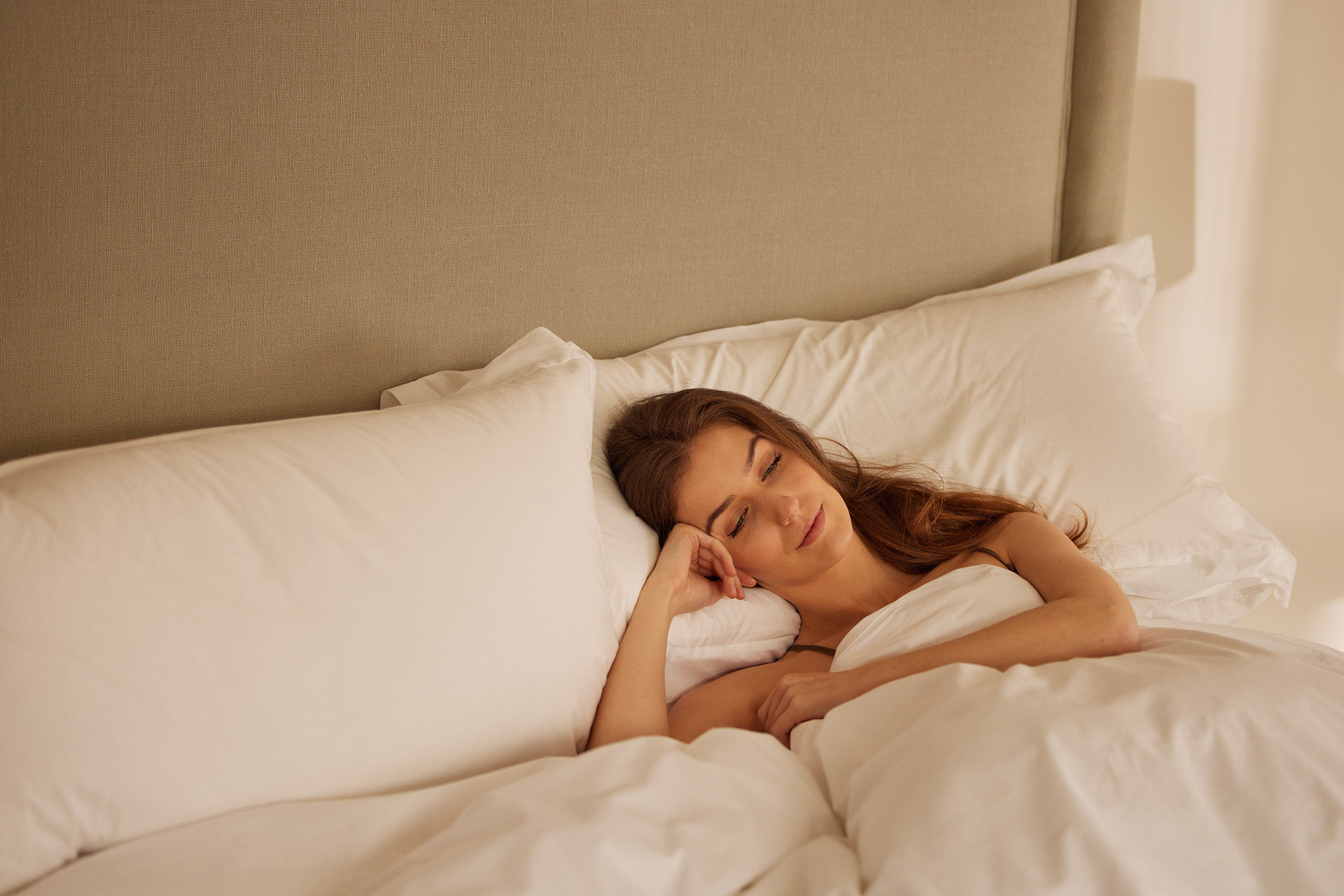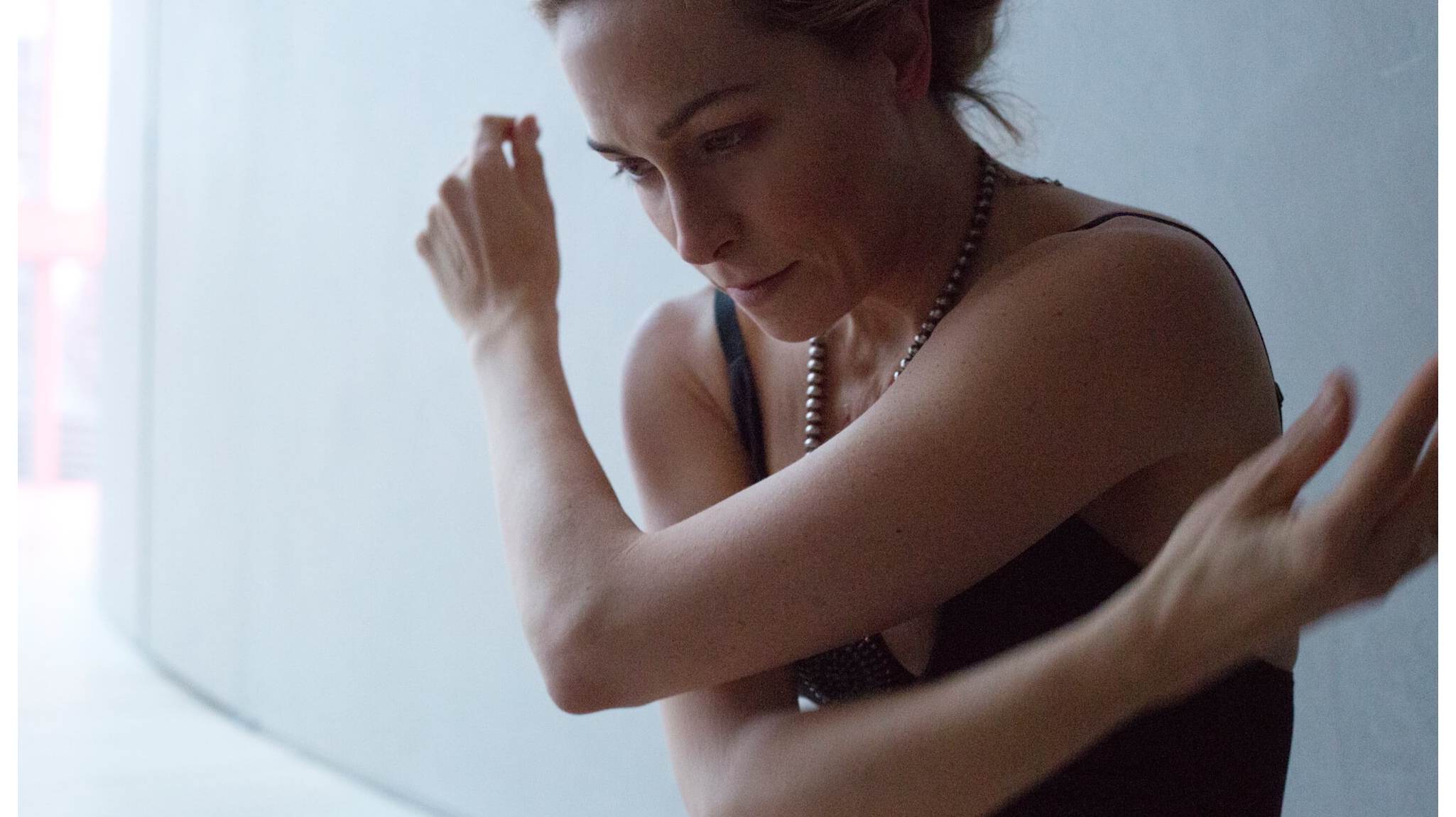Physiotherapist Tobina Marx debunks the most common sleep myths
With the bed playing such an important role in your sleeping position, we spoke to physiotherapist Tobina Marx, to uncover the current common sleep myth about body alignment and support.

We spend a third of our lives in bed, so it’s important that the bed we’re sleeping in provides the right support. If you find yourself tossing and turning at night or waking up feeling stiff, it could be a sign that your current bed is no longer serving its purpose.
Tobina Marx, a physiotherapist at London’s Six Physio helps us uncover the common sleep myths about sleeping position and find ways to ensure we’re getting the best night’s rest. Sleep is one of the key factors that Tobina explores with her clients. She works on understanding how their sleep quality, quantity and patterns affect their body’s ability to recover and thrive. From sleeping on a bed that is too soft, to achieving the perfect body alignment. Join us as she reveals the common sleep myths which may be hindering your recovery.
Sleep myth one
Sleeping on a soft bed causes back pain
We’ve all experienced the feeling of a niggly back after sleeping on a mattress that felt too soft. And whilst the mattress may not have been ideal for our backs, the correlation between the two isn’t that simple. I think it’s important to understand why a bed is uncomfortably soft, by asking the below two questions.
Is it a very soft bed that offers little or no support? Or, is it an old bed that has lost its shape in certain places?
When buying a new mattress, the key is to explore and test how the bed feels. Ensuring it offers a comfortable and restful sleeping experience. For some, this may be a super soft feel in the areas where the body is in contact with the bed, in combination with the support the mattress offers. This supported feel is a result of the bed construction, materials and quality underneath that top layer. It is possible to have a very supportive bed with a super soft feel. Understanding your body and previous experiences with different beds can help guide you to find your optimal support. It is not a simple correlation that a soft bed equals a bad back.

Our bodies may adjust to different positions throughout the night. Image credit: Taryn Toomey
Sleep myth two
Your body should be in perfect alignment when sleeping
Over the last two decades and beyond, there have been many conversations about ‘normal’ alignment. The idea of sleeping, standing, and sitting in neutral positions is advised the most. However, in recent thinking we have a more adaptable model which acknowledges and allows us to understand that whilst neutral is good, our bodies are able and designed to move through different postures.
At night, we don’t have control of our movements and it can be hard to achieve the perfect neutral position. It’s important to highlight that this isn’t as negative as it is sometimes portrayed to be. Don’t feel the pressure to achieve the perfect neutral alignment.
It is true that our body’s posture during sleep can cause issues. We spend long periods of time in sustained positions at night, which is why sleep may contribute to certain symptoms. For example, sleeping on your tummy with the head turned to one side can add to shoulder, neck, and back issues. But we need to look at this as part of the whole picture and not in isolation. What we do during the day is as significant. Factoring in long periods spent at a computer is as important as looking at sleep posture.
We do not need to sleep in a perfect neutral alignment all night in order to experience a good night’s sleep. The key is finding the best mattress and pillow combination in conjunction with understanding any sleep position habits that could be gently improved.

PHYSIO, TOBINA MARX EXPLAINS THAT IN ADDITION TO EXERCISE, SLEEP IS KEY TO GOOD CARE
Sleep myth three
Sleep is not as important as treatment and rehabilitation exercises in managing injuries
Sleep is a crucial time for the body to grow and heal. Now more than ever, it has become an aspect that should be explored as part of everyone’s vitality or medical journey. We know that good sleep can help recovery. The science behind this is emerging, which helps us understand that sleep is crucial in any injury management and prevention.
Research has suggested that sleep may be key to reducing sensitivity to pain. A key hormone called Growth hormone (GH) is released at night during the REM phase of sleep and helps the healing process to repair soft tissue. This is supported by a study which revealed that if you have less than seven hours of sleep at night then you are 17% more likely to get an injury compared to those that slept for 8 hours.
In physiotherapy, we address many aspects of a person’s injury including manual therapy, exercises, advice on daily living and other modalities. However, sleep is a key aspect of good care. It is one of the factors that will optimise someone’s recovery and health.
Tobina Marx is a physiotherapist at two leading London studios, the new Movementum at the Mandarin Oriental and Six Physio. She has worked with ultra-endurance cyclists, rugby professionals, and specialist interest groups among pioneering orthopaedic consultants. She has also travelled on request to Europe, America and Africa with clients on health missions.
For more details on common sleep myths and how to find your perfect mattress, read our mattress guide.
2nd and 3rd images are of Taryn Toomey, wellness expert and founder of The Class, shot by Jaimie Baird for Savoir.
